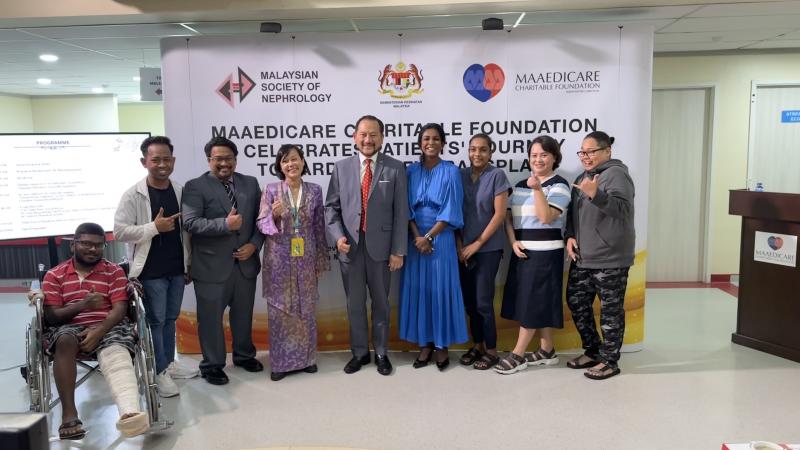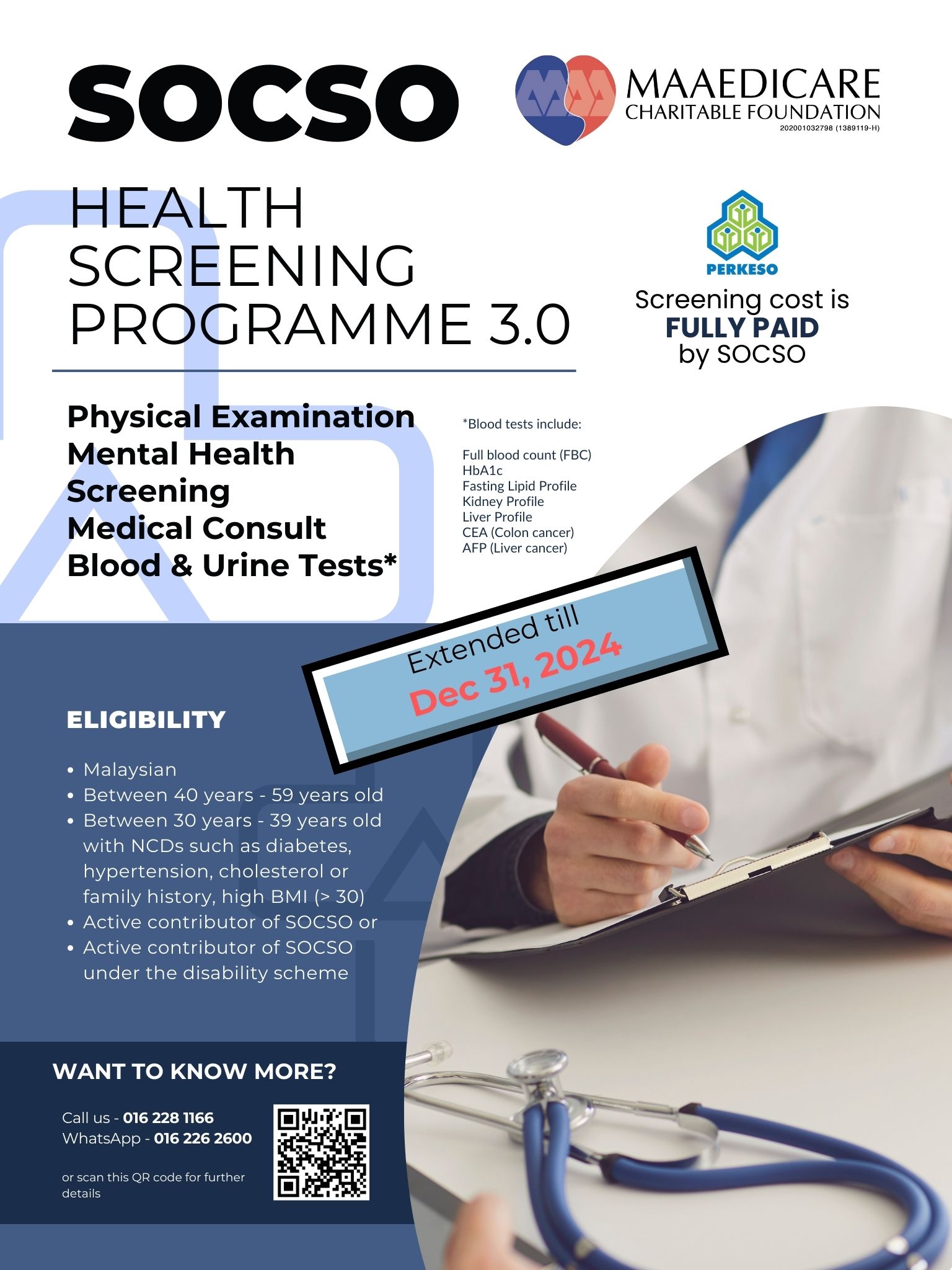Maaedicare Charitable Foundation (Yayasan Amal Maaedicare) is making significant strides in the field of kidney transplantation, offering hope and a chance at a better life for patients suffering from end-stage renal disease.
The Foundation which provides dialysis treatments to over 800 patients nationwide, has begun patient awareness programmes to educate patients on kidney transplants, and pre-operative assessments.
Yang Mulia Tunku Dato’ Yaacob Khyra, Chairman of Maaedicare Charitable Foundation said to align with the Government’s vision of promoting organ transplants, the Foundation has forged partnerships with non-governmental organisations dedicated to kidney health.
“Maaedicare Charitable Foundation is actively positioning its efforts with them, to promote renal transplants and provide pre operative assessment to potential kidney recipients.
“At our 11 centers nationwide, we have initiated patient awareness campaigns for kidney transplants,” he said at a ceremony to meet Maaedicare Dialysis Centre’s five patients, selected to undergo kidney transplantation by MyKAS (Malaysian Kidney Allocation System) under the Ministry of Health.
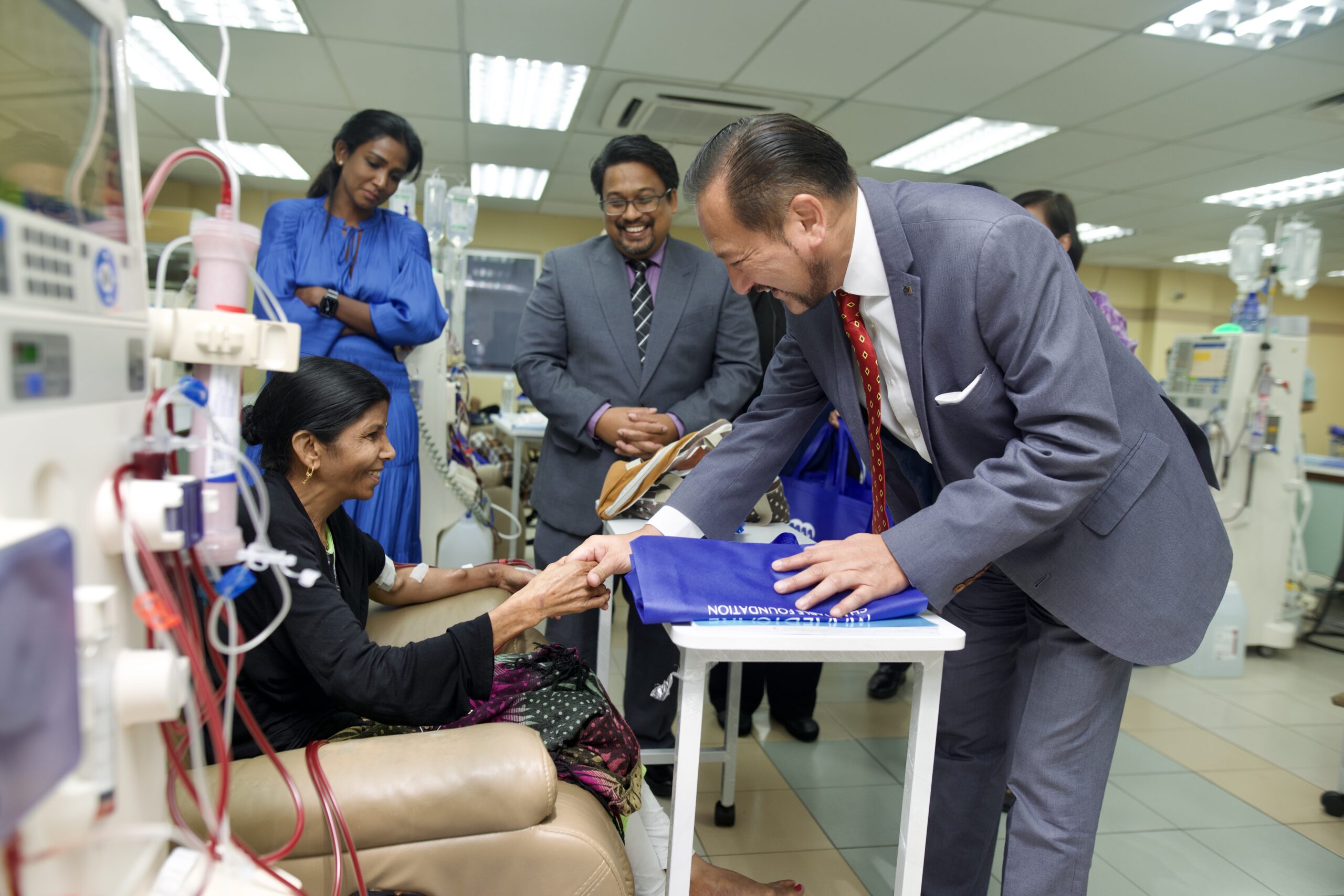
The five selected from Wilayah Persekutuan are:
1. Ms. Ng Pui Yue, (37)
2. Cik Nurul Izzati Azwani Binti Abdullah Zawawi, (35)
3. Madam Rajeswary A/P Sanggarlinggam, (34)
4. Mr. Sakthi Devan A/L Supramaniam, (33) and
5. En. Syed Aiman Bin Abu Bakar, (28)
Y.M. Tunku Yaacob said the new initiative aimed at advocating kidney transplants, marks a significant step in the Foundation’s mission to serve those in need.
He noted that kidneys, obtained from deceased donors have a viability window of 24-48 hours while the life expectancy of a transplanted kidney could last up to 20 years.
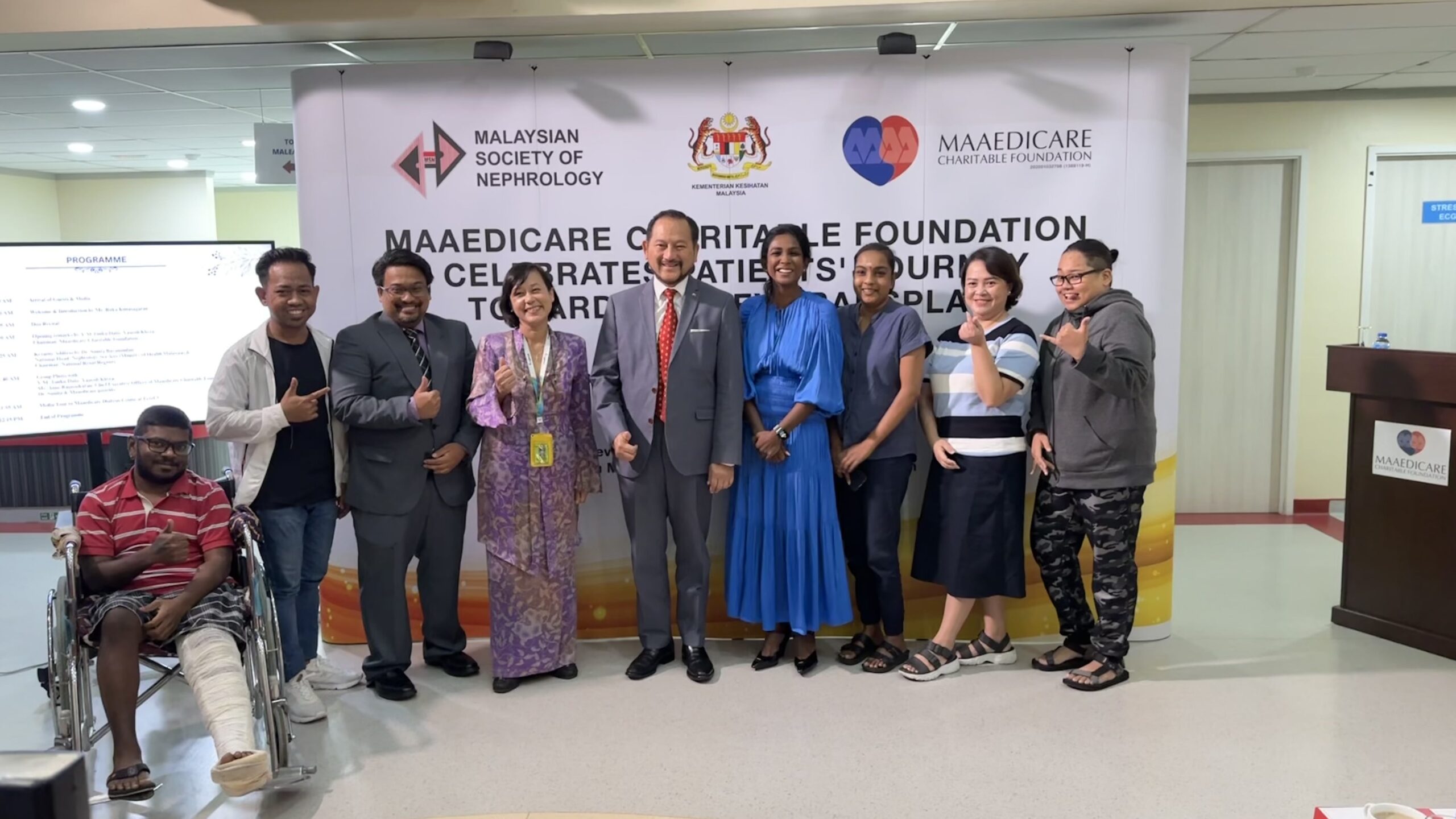
“Kidney transplantation has emerged as a transformative lifeline for individuals battling end-stage renal disease in Malaysia. For individuals facing kidney failure, the possibility of kidney transplantation shines as a source of hope. It is important to address the rising tide of kidney disease in Malaysia,’’ he noted.
According to the Ministry of Health, there are 49,770 patients on dialysis since 2021, constituting 0.36% of the Malaysia’s population.
The rate of new cases has surged to an alarming 9,123 new dialysis patients in 2021, with 53% being males and 47% females. Meanwhile, since 2018, a total of 27,078 patients have met the criteria and are awaiting kidney transplants but only 10 kidney transplants were carried out that same year, due to a shortage of kidneys from deceased donors.
Dr. Mohammad Shazli bin Abdul Rahman, Maaedicare Charitable Foundation Chief Operations Officer said the annual count of deceased donor kidney transplants in Malaysia has remained significantly low, resulting in a substantial disparity between the demand for and the availability of kidneys for transplantation.
But there are numerous benefits one reaps from a kidney transplantation, he notes.
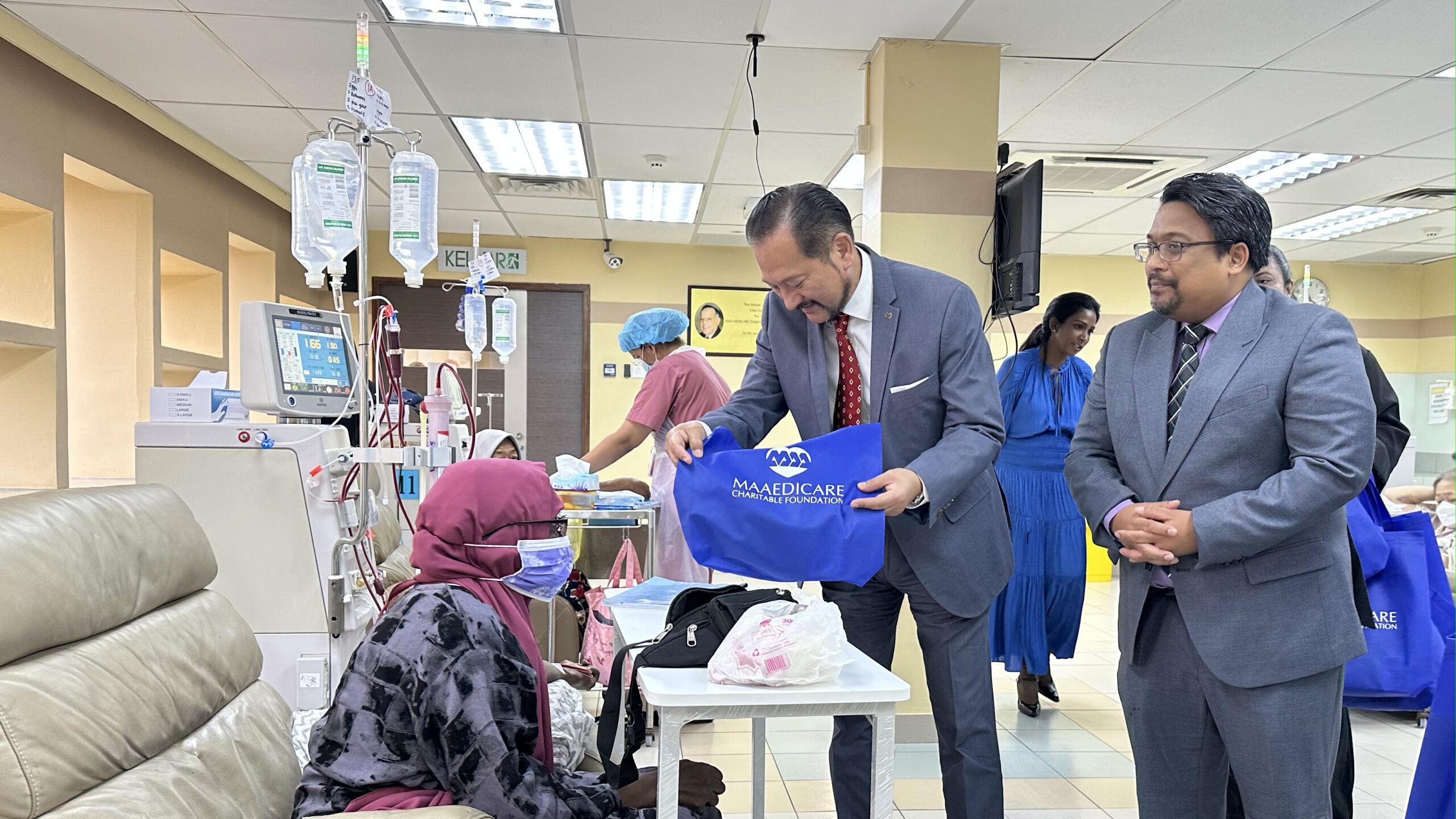
“Kidney transplant stands out as a life-changing intervention for individuals suffering from end-stage renal disease and recipients often experience a dramatic improvement in their quality of life. They regain the freedom to engage in activities previously curtailed by their condition, resulting in an overall improved sense of well-being.
“While kidney transplantation involves initial expenses, it proves to be more cost-effective than long-term dialysis. The cumulative costs of dialysis treatments, medications, and related medical care can surpass the cost of a transplant over time.
“Aside from this, kidney transplant recipients generally enjoy a longer life expectancy compared to patients relying on dialysis, providing them with the opportunity for a more extended and fulfilling life. Post-transplant, patients often experience fewer dietary constraints, allowing them to savour a more diverse and nutritious diet,” he said.
Dr. Mohammad Shazli who oversees Maaedicare’s 11 dialysis centres in the country, said the most profound advantage is liberation from the constraints of frequent dialysis sessions.
“Transplantation enables individuals to regain a semblance of normalcy in their daily lives,” he said, adding that patients when informed of the choices they had, could look forward to a healthier lifestyle.
Dr. Sunita Bavanandan, the National Head of Nephrology Services (Ministry of Health Malaysia), and Chairman of the National Renal Registry said Malaysians should highly contemplate donating their organs.
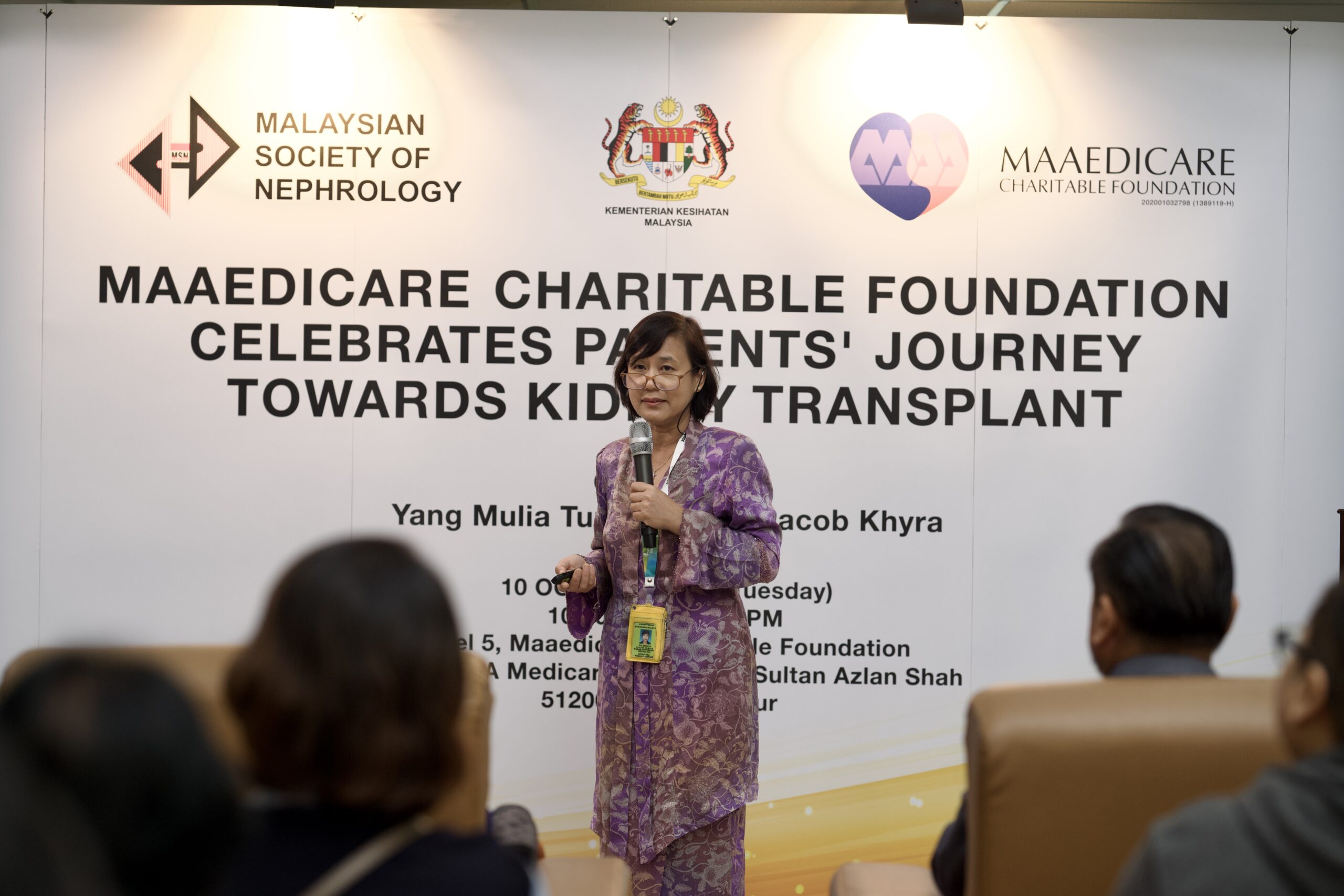
“In response to organ shortage, we highly encourage the act of organ donation, which carries the potential to save lives. This dedication also serves as a symbol of compassion and unity, offering hope to individuals waiting for transplants and demonstrating the significant impact that a single person can have through this altruistic gesture.
“As a medical professional, I encourage all individuals to contemplate this selfless gift of life and decide to become organ donors, providing hope and a renewed opportunity for those who require it.
“Also, taking proactive measures, such as a balanced diet, hydration, blood pressure control, and a healthy lifestyle with exercise and weight management, is crucial in preventing kidney disease. Regular health check-ups aid in early detection and intervention. By prioritising these choices, individuals can effectively reduce their kidney disease risk and enhance their long-term health,” she said at the event on Tuesday, 10 October 2023.
Link: https://www.malaysiakini.com/announcement/682679

